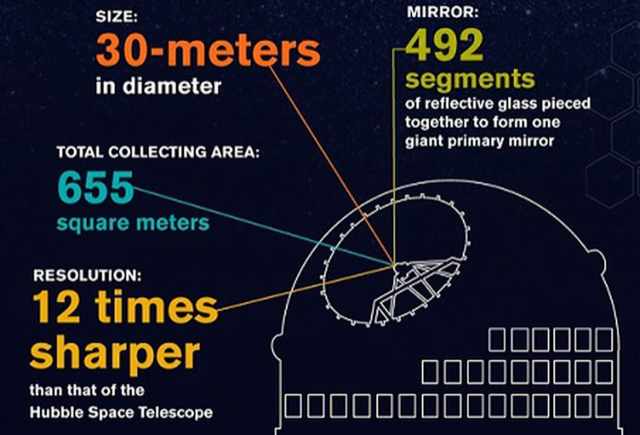UPSC Articles
Thirty Meter Telescope
Part of: GS Prelims and GS-III – Science and technology; Space
In news
- 2020 Physics Nobel Laureate Prof. Andrea Ghez had worked closely with Indian astronomers on the design of back-end instruments and possible science prospects of the Thirty Meter Telescope (TMT) project being installed at Maunakea in Hawaii.

Key takeaways
- TMT project is an international partnership between CalTech, Universities of California, Canada, Japan, China, and India.
- “Thirty Metre” refers to the 30-metre diameter of the mirror, with 492 segments of glass pieced together.
- Once completed, it would be three times as wide as the world’s largest existing visible-light telescope.
- The larger the mirror, the more light a telescope can collect, which means, in turn, that it can “see” farther, fainter objects.
- It would be more than 200 times more sensitive than current telescopes.
- It would be able to resolve objects 12 times better than the Hubble Space Telescope.
- Application: The study of exoplanets
Do you know?
- Already the site of a number of observatories and 13 large telescopes, Mauna Kea is considered sacred by native Hawaiians who believe that such constructions defile the Mauna Kea Mountain.
- If the Thirty Metre Telescope cannot be built on Mauna Kea Mountain in Hawaii, Spain’s Canary Islands is a backup site.














